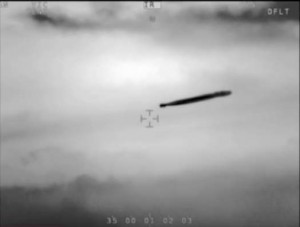Widgetized Section
Go to Admin » Appearance » Widgets » and move Gabfire Widget: Social into that MastheadOverlay zone
US Somalia strikes puts civilians at risk
 In the past year the US launched 14 air strikes killing some top Al Shabab leaders
In the past year the US launched 14 air strikes killing some top Al Shabab leaders
President Donald Trump’s approval of greater US military authority to pursue Al Qaida-linked extremists in Somalia will put civilians further at risk, experts say, especially as drought displaces thousands of people in areas that now will be considered a war zone.
Trump has approved a Pentagon request to allow more aggressive air strikes against extremist group Al Shabab as parts of southern Somalia will be considered areas of active hostilities. US special operations forces can move closer to the fight and call in offensive air strikes more quickly while increasing assistance to the Somali National Army.
Some in long-chaotic Somalia, where access to independent information is extremely challenging, could see this as a chance to spread misinformation, said Laetitia Bader, a Somalia researcher for Human Rights Watch. “At a time when thousands of civilians are currently on the move … the US should be cautious in relying on information about whether civilians are present before deciding to strike,” she said.
Somalia’s fragile central government, which struggles to assert itself beyond the capital and other limited areas, has not yet commented on Trump’s decision. The country also was one of the seven predominantly Muslim countries included in Trump’s recent travel ban that has been suspended by federal courts.
Somalia’s government has declared the growing drought a national disaster, with the UN saying roughly half of the country’s 12 million people are at risk. A cholera outbreak also spreads. More than a quarter-million people have been displaced in recent months, the UN refugee agency says, as drought-stricken families try to reach points where aid agencies are distributing food.
Aid agencies cannot distribute in areas under the control of Al Shabab, which dominates remote towns and villages across the south and central parts of the country. The extremist group has promoted its own drought relief efforts, but they are seen as attempts to keep civilians from leaving areas under their control. “In the environment in Somalia, it’s extremely difficult to distinguish combatants from civilians,” said Joel Charny, director of the Norwegian Refugee Council’s office in Washington. Trump’s decision on Somalia follows what humanitarian experts have witnessed in Iraq, Syria and Yemen, where civilians have been killed amid US-backed efforts to go after extremists or rebels, he said.
“There appears to be a move by the Trump administration to loosen the rules, allow for more discretion at the local level, back campaigns that may be pushing the edge,” Charny said.
“The theme seems to be more aggressive, and the consequences seem to be a spike in civilian casualties. It’s very worrying, especially if you transfer to the Somalia context in the midst of severe food difficulties and the worst drought in 20 years.”
With its frequent suicide bombings and assaults on hotels and military targets in Somalia’s capital and elsewhere, security experts say Al Shabab has proved more resilient than the US expected. And now a new threat has emerged, with fighters pledging alliance to the Daesh group in the semiautonomous northern part of the country.
About 50 US commandos currently rotate in and out of Somalia to advise and assist local troops. The commandos have accompanied Somali forces in several raids against Al Shabab in which dozens of extremists were killed, according to Somali intelligence officials, who insisted on anonymity because they were not authorised to speak to the press.
Source: Gulf News

Figradihiina